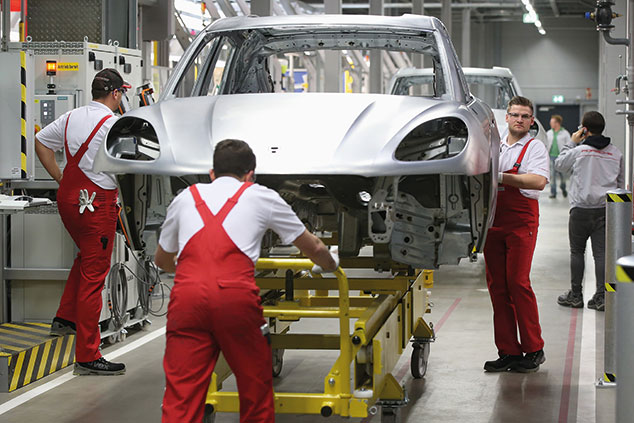
Parties from Germany’s ruling coalition suffered significant losses in Bavaria’s state election, raising questions as to “whether Chancellor Angela Merkel’s government will last”, says Piotr Skolimowski on Bloomberg. Economic growth expectations are being reined in amid fears of the consequences of a hard Brexit, which looks “ever more likely”.
Germany’s economy might have a “suspect engine,”says Roger Bootle in The Daily Telegraph. Since the adoption of the euro in 1999, GDP there has grown by 32%, while in the UK it has increased by 43%. But in that same period spending by German consumers has only risen by 20%. What explains this discrepancy between GDP and consumption? T
he explanation for relatively weak consumption is not down to Germans’ “legendary” saving habits, but the fact that German workers “have not been paid that much”. Since 1999, the average real pay of German workers has risen by 23%, or 1.2% a year. Meanwhile, German companies have done spectacularly well, thanks to strong exports of their goods and services that make up 47.2% of GDP.
As a result, the German economy is completely “lopsided”, with excessive reliance on exports and domestic demand too weak, as Bootle points out. Throw in worries over low investment in infrastructure and education, and you can see why investors are having doubts.